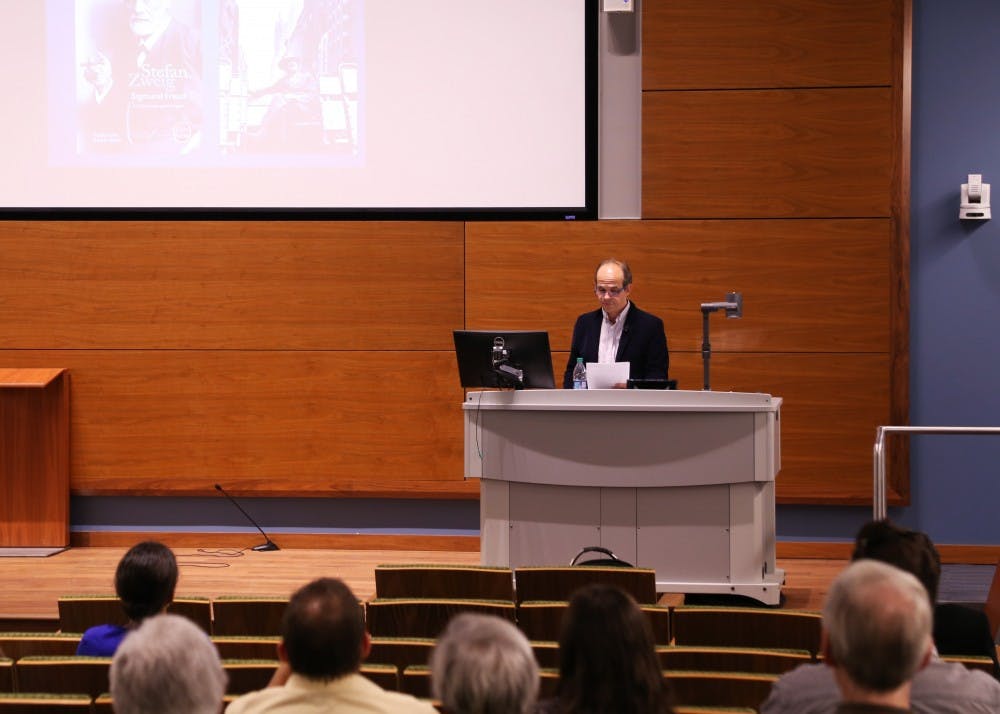From exile to estrangement, Professor Marcos Lucas’ opera “Stefan and Lotte in Paradise: A Collaborative Opera Project” details a true story of a couple’s exile from Nazi Germany during World War Two.
A screening of the opera, “Stefan and Lotte in Paradise,” was presented with a lecture by Professor Marcos Lucas on Monday at the School of Global and International Studies.
Written in 2012, the opera is a one-hour chamber piece written by composer Alan Williams and Professor Lucas. It tells the story of the last few months of the lives of two Austrians fleeing Nazi Germany to Brazil in 1940.
The characters in the work are based on real people. One of them is Stefan Zweig, who according to the "Stefan and Lotte in Paradise" blog was at that time the most translated author in the world. His writing includes works such as “Amok” and “Magellan,” and he also composed over 100 pieces of music.
The role of nostalgia is strong in the piece, Lucas said. A character named Ernst Feder, who was a close friend of Zweig's, narrates the story as a flashback.
“The spirit of exile and despair is given literal attention,” Lucas said. “His depression is clearly more deeply rooted than just resulting from exile.”
Professor Lucas is a visiting Fulbright Chair of Music from the Universidade Federal do Rio de Janeiro. Before the opera was presented, Professor Lucas gave a lecture about the history of Zweig’s life, his background and the process of writing the opera.
It is very unusual for composers to work together on an opera, Lucas said.
“We found ways of making the project work,” Lucas said. “To make the project successful, we had to accept contrasting views.”
The opera’s music includes parts of Zweig’s own scores. The Stefan Zweig Musical collection in the British Library contains over 200 manuscripts in Zweig’s handwriting. Lucas and Williams visited the collection and reviewed the items in preparation for writing the opera.
The music reflected the emotions of the main character, Zweig, event attendee Harry Connor said.
“There were moments where it was just this wall of sound,” Connor said. “Then, when he was with his wife, the music was much more organized.”
The opera is filled with emotional outbursts. Stefan and Lotte often look back on their life in Europe before World War Two commenced and break into tears and moments of profound anguish.
“Music, once such a source of pleasure,” the character Zweig sang. “My manuscript collection, I shall not speak of it further, I shall scatter it to the winds!”
The libretto for the opera was written by playwright Philip Goulding, who has won awards from the International Theatre Institute and the Arts Council of England Theatre Writing Bursary. Goulding’s writing for “Stefan and Lotte in Paradise” include themes of persecution, migration and exile, according to the opera’s blog.
“There was a a lot of grief,” Connor said. “The chaotic music really presented the main character’s struggles with depression.”
Professor Lucas will host and perform at chamber music event “Brazilian Contemporary Music” on Thursday, Nov. 9 at Auer Hall.




